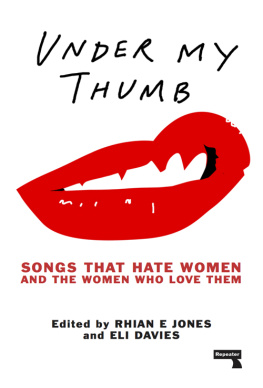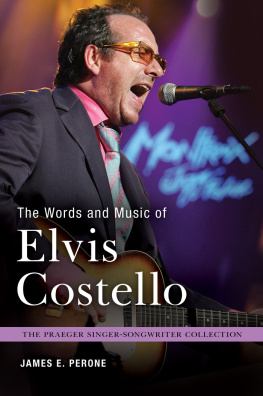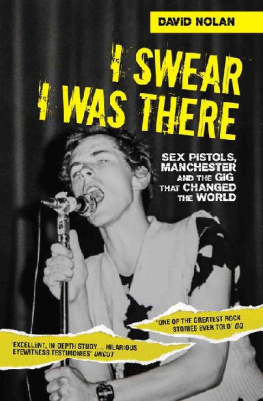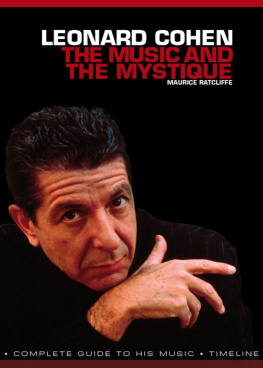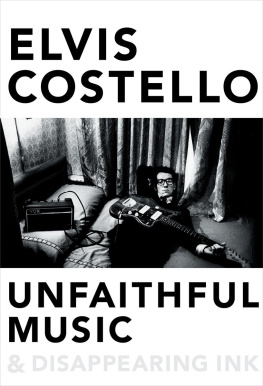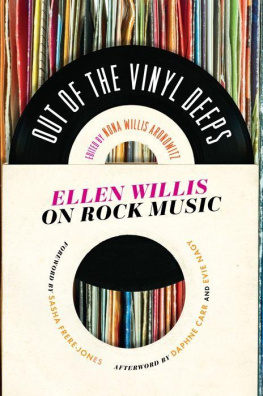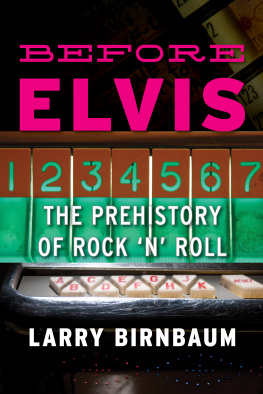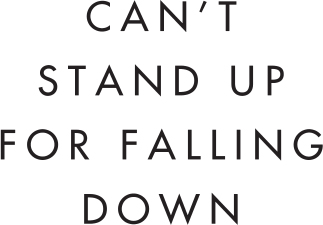

CONTENTS
It happens like this: in April 1974, Melody Maker advertises a vacancy for a new junior reporter/feature writer. In this by-gone time, Melody Maker is a genuinely big deal the UKs best-selling music paper, with weekly sales of 200,000 and counting. Eager young scribes all over the country are probably already stapling together their painstakingly-composed reviews of albums like Aqualung, Brain Salad Surgery, and In The Wake Of Poseidon the kind of overblown prog rock guff too often (for my liking) championed by MM. These earnest appreciations are no doubt even now being stuffed into envelopes and addressed to editor Ray Coleman at the papers swanky Fleet Street offices. This is probably the chance a lot of people have been waiting for.
Anyway, my girlfriend Kathy sees the ad in a London listings magazine, reads it all the way through and laughs when she gets to the bit about the kind of new recruit MM is apparently looking for. Now that sounds like me, she says. Why not apply? Go on, take a look. I do and it does, which makes me laugh, too, because it turns out they are after someone whos 21 or younger, a music fan, and is, in their words, highly opinionated. And whats this at the end of the ad? No previous journalistic experience necessary.
That gets my attention.
Well, Im 21, evidently a hurdle cleared there. Ive also got a lot of records. I similarly have a lot of opinions, often brashly expressed even when I dont know what Im talking about. As for journalistic experience, I dont have any. I do have a small belief that I can probably manage to write something more complicated than a ransom note. But its not like I have some long-smouldering ambition to write seriously about music or anything else. And that includes writing for Melody Maker, even though Ive been reading it for years its just never crossed my mind. In fact, the whole idea of making even a half-hearted bid for the job seems suddenly preposterous. What am I thinking of? Id surely stand more chance of being taken on by the circus as a moustachioed strongman or a whip-cracking lion-tamer. On the other hand, nine months after leaving art school in South Wales and moving to London with only a vague idea of what Im going to do next, Ive ended up working in the mail order department of a posh bookshop near Piccadilly Circus where my mind has started to unravel. Its not like Ive got a whole lot going for me at the moment. No ones caught me sobbing at my desk yet, or stabbing myself in the leg with a letter opener, but you never know whats around the next corner.
I decide to apply.
I dont, for obvious reasons, have any kind of CV or clippings of local paper scoops, and it doesnt occur to me to knock up some sample reviews to offer up as palpable evidence of my wit, insight and general musical knowledge. So I write a letter that tells whoever reads it that Im a typical small-town music fan of the time, the kind that as a teenager in the late Sixties spends hours in the local record shop in my case, a place called Derricks which is about as big as a mini-cab office but astonishingly well-stocked. In shops like these all the best new records are on tempting display, racks of them, their sleeves handled as tenderly as religious relics. Melody Maker, I explain, was an essential guide to what was worth listening to among all these releases. You could have put together a pretty good record collection back then by paying reasonable attention to the recommendations of writers like Richard Williams and Michael Watts. I did, anyway. In fact, I read every issue of MM from cover to cover, at least twice over, hungry for everything in it, thus including the jazz section, Folk News, the loon pants ads at the back and the enormous classified section that lurks there also a vast marketplace for jobbing musicians (did A Able Accordionist ever find the gig he was looking for?).
For years, I go on, MM is just about indispensible. But somethings recently changed: in 1972, the ailing New Musical Express is given weeks to improve circulation or face closure. The papers editor Alan Smith and his deputy Nick Logan boldly recruit new writers from Londons underground press who bring a new acerbity to its pages, and an irreverence and general liveliness that suddenly makes MM seem regrettably stuffy, sober and staid its more temperate approach to just about everything makes it seem dull against its rivals colourful outspokenness. There are still plenty of great writers on MM, I say, but what makes new NME stars like Nick Kent and Charles Shaar Murray stand out, apart from their writing, of course, is that they look so much the part. The picture by-lines of MM staff do little to flatter them. Richard Williams and his frankly scary moustache have both gone by 1974, but long-serving Features Editor Chris Welch still beams from MMs pages like someone whos just won a marrow in a raffle, while Assistant Editor Mick Watts picture makes him look frighteningly like the infamous international terrorist, Carlos The Jackal. Kent on the other hand looks enough like a rock star to pass for one of Roxy Musics itinerant early bass players and Charlie Murray with his shades, afro and leather jackets wouldnt be out of place in a band shot of The MC5. My point is that MM right now could do with livening up. I go on about this at some length, get quickly and hopelessly worked up, and with a bravado I dont for a moment really feel, sign off the letter with the following message: Melody Maker needs a bullet up the arse. Im the gun, pull the trigger. I post the thing before I have second thoughts.
A week later, I get a letter from Ray Coleman, along with a totally flabbergasting invitation: can I come in to MM HQ for an interview? Hey, what? How did this happen? Has no one else applied for the job? Come the appointed day, I turn up at MMs offices in Fleet Street, convinced theres been a mistake that will belatedly be recognised upon my arrival, at which point I fully expect to be sent politely packing with apologies for whatever misunderstanding has occurred. In the event, I am ushered into the presence of the fabled Coleman, the editor whos turned MM into such a sales juggernaut. Hes a man in his late-thirties, balding with fuzzy sideburns, large heavy-rimmed glasses and the reassuring manner of an avuncular oncologist or much-loved family vet, although the jarring colour clash of what hes wearing a purple suit, bright yellow tie and lime green shirt makes him look like the manager of a Miami car wash franchise. Hes quite a sight. God knows what he makes of me with my scarves, bracelets, earring and one of my old glam rock jackets with padded shoulders, sequins and zips up the inside of both sleeves. Whatever, hes warm and courteous and we chat pleasantly about art school and music for around half an hour, with Ray gently prompting sometimes outrageous opinions from me that seem to amuse him. And thats pretty much it. I hadnt been expecting to sit a written exam or anything, but Im still surprised that Ray hasnt asked me to present so much as a shopping list as evidence that I can actually, you know, write. Instead, he thanks me for dropping in as if Ive just strolled by and popped in to see him on a whim shows me to the door and says hell be in touch.



